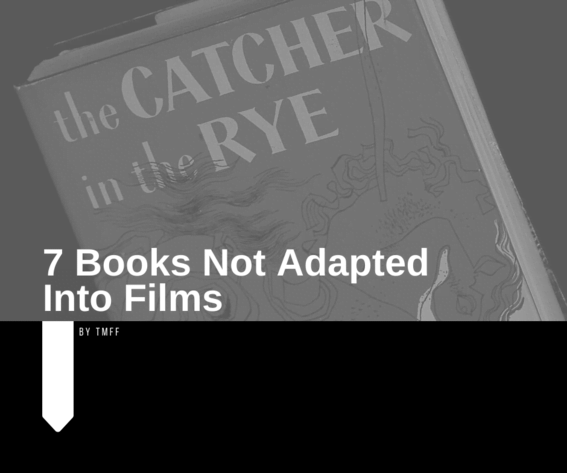Quite often, a well loved booked will get adapted into a movie or a tv series, and it will turn out quite badly. Fans of the original content will usually complain about the quality of the adaptation, frequently citing issues with how the characters are explored, how the plot flows, and how most of the changes are bad ones. I have been on this exact side of the fence many times, and I must say that it is quite rare when a film adaptation gets it right. Even more rare is the case when the adaptation surpasses the book in terms of quality.
Therefore, we shouldn’t exactly be enthusiastic about more books being turned into films, right? To that, I would answer yes… but also no. Even though you might not want your favourite book to be botched through a film adaptation, you may not be able to help but wonder just how it would look like in film format. And in some cases, we so far do not have an answer. Which is the main topic of today’s article – a bunch of books that I would have expected to see turned into movies… yet nothing comes up when we run a search on IMDb. Here are 7 great books that were not adapted into films:
1. Catcher in the Rye – J.D. Salinger
Pretty much every teenager out there has read Holden Caulfield’s adventures – even youngsters who don’t usually read books will probably have read this one. Which makes it the more surprising that it has never been adapted into anything noteworthy as of yet. Perhaps the time will eventually come.
2. Monday Starts on Saturday – Boris and Arkady Strugatsky
This is not exactly the most famous one of the Strugatsky brothers’ works – Roadside Picnic takes the crown both in terms of popularity of the source material, as well as in terms of adaptations, as we have Tarkovski’s Stalker, as well as the STALKER videogame series as a result. Monday Starts on Saturday is a sort of Soviet Harry Potter, and presents a world filled with magic and strange creatures, that on a deeper level is actually a veiled critique of the USSR.
3. Brave New World – Aldous Huxley
Brave New World is a dystopian novel that came out in 1932 – meaning that it predates the other reference point in dystopian 20th century masterpieces, namely George Orwell’s 1984. Despite that, and despite the great success Huxley’s book has enjoyed over the decades, nothing of note has emerged in the way of film adaptations.
4. One Hundred Years of Solitude – Gabriel Garcia Marquez
Centered around the Buendia family across several generations, and set in a fictional Colombian town, Marquez’s novel seems almost perfectly placed for a cinematographic exploration – or, considering the thick plot and myriad of characters, perhaps a TV series. And yet, we have nothing so far. It might be that the author’s trademark magical realism is a little hard to put in practise within visual form. Director Giuseppe Tornatore once tried to buy the film rights, but Marquez came up with a difficult condition – each chapter should be two minutes long, and released at the rate of one per year, during 100 years.
5. The Curious Incident of the Dog in the Night Time – Mark Haddon
This is the story of an autistic 15-year-old boy who investigates the murder of a neighbor’s dog, while also trying to make sense of his own situation. Even though the novel’s film rights were sold some years ago, an adaptation has so far not seen the light of day. Admittedly, it might be a little tricky given that a lot of the plot relies on monologues, which also makes it a potentially interesting watch if done right.
6. Focault’s Pendulum – Umberto Eco
There are stupid conspiracy theories, and there are smart ones. We had enough of the former (especially during the past two years), but not so much of the latter. Umberto Eco’s book is a crazy mix of pretty much everything you can think of, but put together in a smart way – unlike some of Dan Brown’s writings. This is equally why it should be adapted into a film, and why it hasn’t been adapted into a film.
7. Cat’s Cradle – Kurt Vonnegut
Vonnegut’s stuff might also be quite difficult to adapt, due to his unique style and very fragmented narrative practices. And none more so than Cat’s Cradle – a film representation would most likely struggle to grab hold of the plot that starts off with idiosyncratic scientists and leads to a sort of armageddon.









Leave a reply